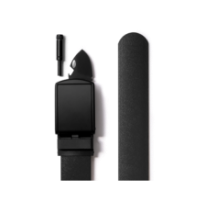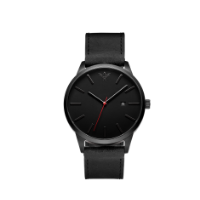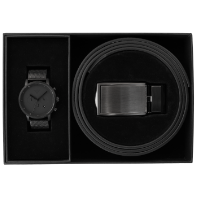THE LOOP
My Name is Sam...Sometimes
Now I have come to terms with my name in a variety of situations. I am older now and the confusion and anger I felt around my name has subsided.
I am midway through college and I begin my search for a "real" job. I get my resume together and begin to send it out. My name splashed across the top "NERY SOLANO"; eagerly waiting, I received very little in response. (You may be thinking I was just under-qualified. This was my initial response, too).
I went to one of the interviews that I had landed and was met with, "Wow, you look nothing like I expected."
Which reminded me of the uniqueness of my name, at least around here.
I decided to give the same jobs I had not received a call from a second shot, but with the name SAM. The emails began to come in. Although I was happy, that confusion crept back into my mind as I had to grapple with my name even as I began transitioning into adulthood.
To be continued.....
(P.S. this was way before I applied here and this does not reflect on the hiring practices of SlideBelts.)
Was sind die Unterschiede zwischen Deutschland und den USA?
Being the American in a German classroom means that I automatically have extensive knowledge about all things America, like New York City, band camp, Miami, iced tea in the South, and a thousand other things that I have absolutely no experience with. I even get a lot of questions regarding British English thrown my way. Because, you know, I’m an expert on that, too.
The question that every class asks me is What are the differences between Germany and the US? The first time this question was directed at me, I panicked. I had never really thought about this. The people speak different languages? They have different histories? It’s hard to find German food in California? Germany has better everyday bread? While all of those are true, I didn’t feel like they cut it. What’s different? What’s different? And then three things came to me. Here is the resulting dialogue:
In the U.S., when you’re walking down the street and pass a stranger walking in the opposite direction, it is normal to make eye contact and give them a small smile or nod. Just a sort of I acknowledge that you are there and you are real and you are a person smile. This is so normal for me, and I do it without thinking. So what do you think the response was when I smiled at people on the street here in Germany?
[They laugh at me.] "People thought you were crazy!"
Yep, I received some very bewildered looks. People thinking, "Do I know her? What does she want from me? This is uncomfortable." And a noticeable quickening of their pace.
"Man, if anyone ever did that to me on the street, I’d think exactly the same thing."
Here’s another difference - in the U.S., if you ask someone how they’re doing, the expected answer is "good". Anything else would be shocking. I’m not actually looking for your life story when I ask, "How’s it going?" In the U.S., this is just a greeting and has a fairly limited range of acceptable answers. Whereas in Germany, the question "Wie geht’s dir?" is actually asking how you are really doing. "Not so great," or "that last lesson was so stressful" are acceptable answers.
Yea, that’s super weird. Silly, superficially nice Americans.
And for my last, and favorite difference between the two countries…[I stroll over to the window, open it, and thrust my hand outside.] You. Can’t. Do. This. In. The. U.S.
[The kids looked at me quizzically.] "You can’t open windows?"
No, no. In the U.S. there are screens over the windows, so even if I opened the window in the classroom, I wouldn’t be able to put my hand outside.
"Whaaat? Why?"
Bugs.
Side note: This is also one of my answers to, "What is your favorite thing about Germany?" Windows.
In this case....











